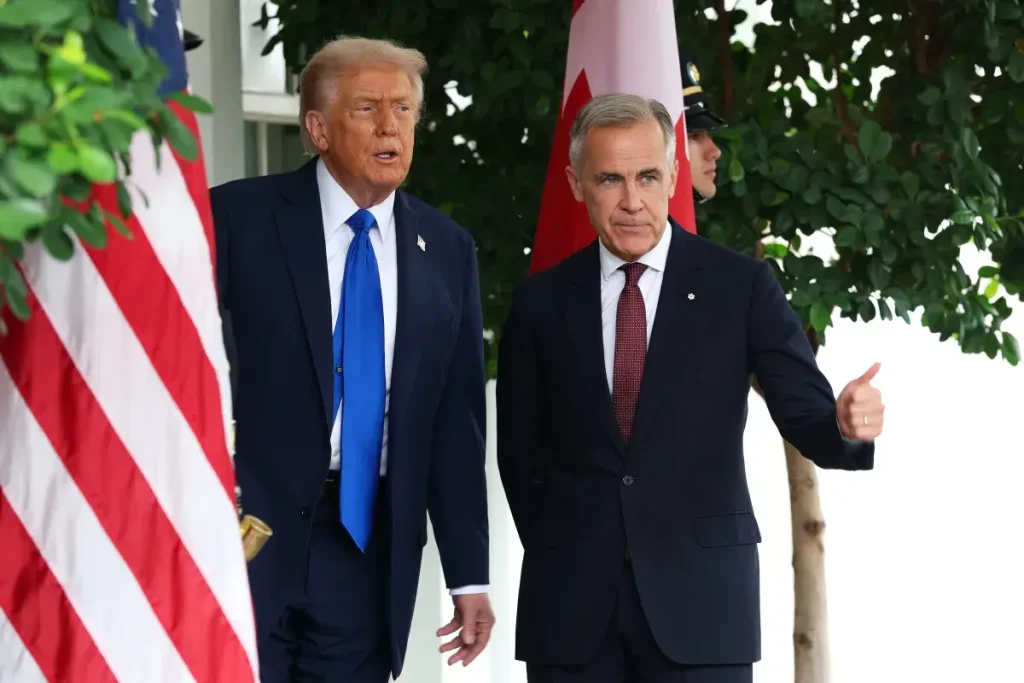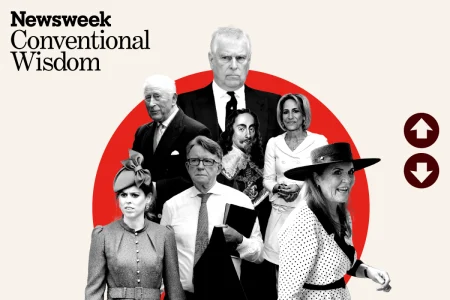Americans Still Value Canada Despite Trump’s Feud
Recent polls reveal a striking contrast between Americans’ enduring positive sentiments toward Canada and their more divided views on President Donald Trump, as tensions between the two leaders escalate. This disparity highlights the complex dynamics at play in a relationship that has historically been one of the strongest international alliances in the world. The current diplomatic friction stems from a recent Ontario government advertisement that used a clip of President Ronald Reagan criticizing tariffs, which prompted Trump to threaten additional 10 percent tariffs on Canadian imports. Despite this political turmoil at the leadership level, average Americans continue to hold their northern neighbor in high regard, maintaining a decades-long tradition of goodwill that transcends partisan divides.
The data consistently shows that Americans view Canada with overwhelming positivity, regardless of political affiliation. According to Gallup’s February polling, 89 percent of Americans feel warmly toward Canada, with just 10 percent expressing unfavorable views – a trend that has remained remarkably stable since 1987, never falling below 83 percent favorability. This stands in stark contrast to Americans’ perceptions of Trump, whose approval ratings started at 47 percent upon returning to office in January and have since declined to 41 percent approval with 54 percent disapproval by early October. CNN data analyst Harry Enten highlighted this disparity, noting that Canada enjoys a net popularity rating approximately 60 points higher than Trump’s. “When you pick on Canada as the United States president,” Enten observed, “you are picking on a country that the American people adore.”
The resilience of Canada’s popularity among Americans transcends mere political sentiment and reflects deeper cultural, social, and economic connections between the two nations. Lydia Saad, Gallup’s director of U.S. Social Research, explained that when Americans consider Canada, they draw upon a multifaceted set of associations spanning shared values, cross-border relationships, and mutual economic interests – not just political disagreements between leaders. This explains why even during periods of diplomatic tension, Canadian favorability ratings remain robust. However, Saad noted a subtle shift: the percentage of Republicans who view Canada “very favorably” has declined since 2017, suggesting that while overall positive sentiment remains high, intensity of approval has been affected along partisan lines as political rhetoric has sharpened.
Other polling organizations confirm these patterns. Pew Research found 74 percent of Americans hold favorable views of Canada, while YouGov measured 76 percent favorability among Americans toward Canada – significantly higher than the 37 percent of Canadians who view the U.S. favorably. This asymmetry in cross-border perceptions reflects the differing power dynamics and experiences of the relationship. Particularly notable is Americans’ positive assessment of Canada as a trading partner, with a Leger poll finding that 66 percent of Americans consider Canada a good trading partner while just 7 percent disagree. The same poll revealed that Canadian Prime Minister Mark Carney enjoys higher approval ratings (33 percent) among Americans than other foreign leaders, though still trailing Trump’s domestic approval in that survey (39 percent).
The current diplomatic rift highlights the unusual position of two deeply integrated economies and societies experiencing leadership friction despite grassroots goodwill. The 5,000-mile shared border represents not just a geographic boundary but a complex web of economic interdependence, cultural exchange, and mutual security interests that have developed over generations. Trump’s recent comments about annexing Canada and making it the 51st state, coupled with tariff threats, strike many observers as misaligned with the historical relationship between the nations. For his part, Canadian Prime Minister Carney has expressed willingness to restart trade negotiations, noting that “considerable progress” had been made prior to the controversial advertisement, signaling a desire to de-escalate tensions despite the provocative rhetoric.
As this situation continues to unfold, the disparity between leadership tensions and public sentiment creates an interesting dynamic in U.S.-Canada relations. The White House maintains that Trump is delivering on his campaign promises, including addressing what they characterize as “unfair practices” affecting American workers and manufacturers. Meanwhile, Ontario Premier Doug Ford has emphasized that “Canada and the U.S. are neighbors, friends and allies” who are “so much stronger when we work together,” calling for building “Fortress Am-Can” to strengthen both nations. This language of partnership contrasts sharply with Trump’s more confrontational approach, creating a disconnect between diplomatic discourse and the enduring goodwill most Americans feel toward Canada. As additional tariffs take effect, the resilience of this special relationship faces a significant test, though history suggests the deep connections between these nations will likely withstand the current political turbulence.















